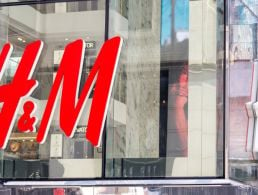New research reveals huge performance gaps between organisations with different levels of employee resilience.
There are staggering differences in employee performance within Ireland and UK organisations based on their level of workforce resilience, according to new research by the HR software company MHR International.
The research was conducted among 200 senior HR professionals in March 2021, and MHR International has devised an action plan based on the findings for companies who wish to strengthen employee resilience.
The research explored three key dimensions of workforce resilience – organisational resilience, employee resilience and process resilience. Senior HR leaders were asked to rank their organisations on a range of metrics within these three key areas.
Almost all HR professionals surveyed (93pc) agreed that workforce resilience was a priority.
The research found that companies in the top-ranking quartile for workforce resilience are performing significantly better than other organisations in customer satisfaction, productivity, profitability, agility and brand reputation.
80pc of companies with high resilience ratings said their employees are more productive and produce better quality work than competitors. Resilient employees are engaged, motivated and open to ideas, according to the findings.
Furthermore, resilient employees adapt better to new working patterns, such as remote working and digital-first initiatives – both necessary as workforces navigate the post-pandemic economy.
Eamon Rheinisch, general manager of MHR Ireland said the findings showed the importance of workforce resilience to competitiveness and outstanding business performance.
“Having a workforce with strong employee resilience is the catalyst for organisations to be able to adapt to today’s ever-changing world and meet demands in the future,” he said.
“Strong leadership and a nurturing culture are essential [to employee resilience] but so are good communication, an extensive skills base and the right technology for effective implementation of policies, processes and programmes.”
He emphasised that a company’s overall resilience model would always need continuous work. “Resilience is not a short-term change because of the pandemic. There’s now a necessity for businesses to be able to evolve, sometimes at pace, and keep up with changing demands and environments.”
Rheinisch said that businesses should focus on equipping themselves with the tools to plan ahead, as this would retain internal cohesion to offer a sense of common purpose and focus through periods of change.




